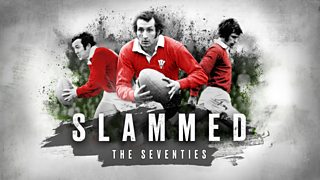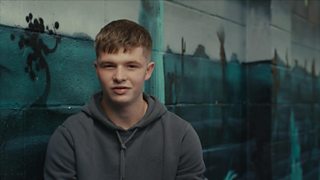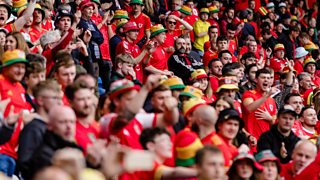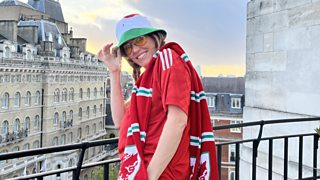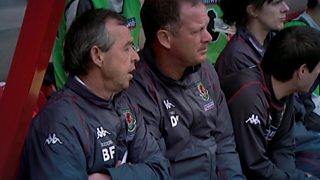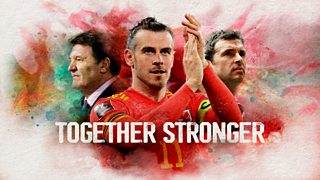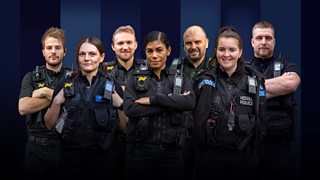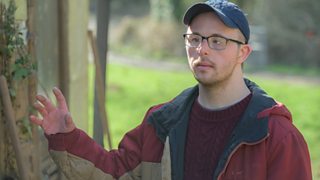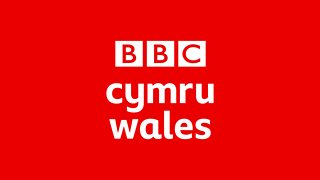The Show Must Go Online
How are drag queens coping during the pandemic?
25 August 2020
Drag performers, Mel Teaser (Taylor) and Lucy Fur, share how lockdown has affected the LGBTQ+ community, how drag has moved online and the importance of safe spaces.

Mel Teaser on missing the physical sense of community
Actor Taylor Martin feels like he’s missed out on a summer filled with live drag events, many of which he was scheduled to perform at.
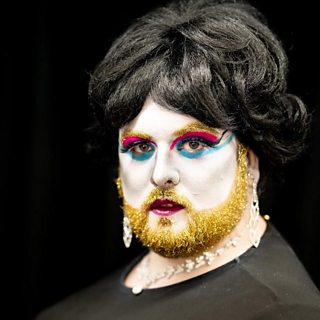
It’s an industry where you’ve got to keep working to keep yourself fresh. You let yourself drop for a second and you're old news then.Mel Teaser
“I feel like I was just going to break into the scene. I started doing drag in 2019 and I got offered a series of gigs in a bar. It was paid and that’s a guaranteed income, and then Miss Covid came along and shut all that down.
“Then you’ve got Cardiff Pride which is like the gay Christmas in Cardiff. We all go out and have the best weekend with friends - I was hoping to perform there this year.”
For Taylor, drag is a way of expressing himself. He feels like he can “push the boat out” and be “a bit more edgy” as Mel Teaser, as opposed to when he’s not performing.
“I can do stuff in drag that I just can’t do as me. As an actor I’m very liberal and careful about how I portray myself. But in drag I can just go a little bit more naughty and you can have so much fun with stand-up comedy and performance songs. In drag it’s all impromptu.”
Taylor has also noticed the impact it has had on the entire LGBT community.
“The venues are at the top of importance in the LGBT community. You see it a lot that we don’t need gay bars anymore. We 100% do, in the same way we still need Pride. Although it is a celebration of who we are, it is a reminder that we have to fight for who we are."
“There’s help in these gay bars. We need to have these places."
“A lot of people in the LGBT community are single or living alone. They go into these bars to sit with their friends and just watch a show. It’s like sitting in your living room sometimes in a gay bar, when you’re sat with everyone you know. I think it was a shock to the system for people who miss the community spirit in these venues."
Many drag queens are hosting online performances as a source of income and to help keep the sense of community alive. But Taylor doesn’t think his neighbours want to hear him belting out songs in his living room at midnight!
“It’s an industry where you’ve got to keep working to keep yourself fresh. You let yourself drop for a second and you're old news then. And confidence is a natural thing that we do have as performers, but when you haven’t done it for a while you think 'can I still do it?'. So, it is a concern!”
“I hope in a couple of months we get a sense of normality back. I hope that it gives people a grounding that they really take advantage of every second they get to perform and that the community will really drive together, give people an equal opportunity. That means not just for drag queens, but for drag kings and non-binary queens as well.”
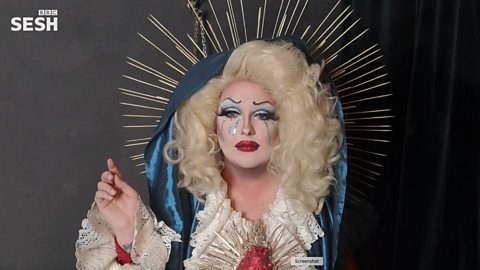
"The drag scene is alive and well, it's just moved online"
Lucy Fur on the impact coronavirus is having on drag culture
Lucy Fur tells queens to ‘have no fear’ as drag goes virtual
With lockdown, drag performers can’t perform. So, what has happened is we are all having to perform online, exclusively.
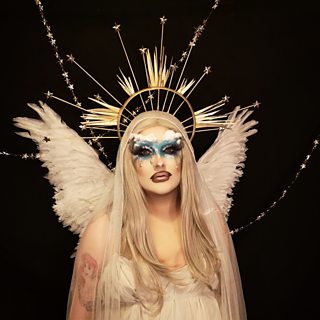
Clubs are so important to queer people... it's where you find your tribe and it's where you create memories with your friends... it's hard but we will get through this.Lucy Fur
Essentially, the drag scene is alive and well, it's just moved online. Performers are having to innovate and come up with ways to translate what they do in a live stage show into online gigs.
I do a lot of online content, more so than performing live in fact, so lockdown hasn’t really changed things for me. So, seeing everything switch to online and seeing queens having to come up with innovative ways to keep shows fresh has been absolutely fascinating.
Throughout my entire drag career I've always made online gigs, but there’s something about performing live that just hits differently.
But for performers whose entire income is drag, it's even worse because they can’t earn the money that they used to earn and there’s not much support there as for people who have been furloughed.
So, what has happened is we are all having to perform online and it's really weird. You don’t get any response, you don’t know if a joke has landed, you have no idea if you look correct or if you’re coming across a certain way, you just have to hope for the best.
You can see the comments, but between the lashes, not having glasses on and the camera being six feet away (because that’s the best I look), I have no idea how well I'm doing and it's terrifying!
We now have complete creative control of what you’re seeing, so even though I'm made up, I have a wig on and I've got boobs in... from the waste down you have no idea.
At the end of the day, drag is best experienced in a live setting, it’s best experienced in a club - it’s where we come alive, it's where we exist most of the time and it's where we find our people. Clubs are so important to queer people, they’re often like a hub for everything. It's where everyone meets up, it's where you find your tribe and it's where you create memories with your friends. So, them being closed down means there’s a very big fracture in the queer community right now because everyone's not seeing each other as much and it's hard but we will get through this.

